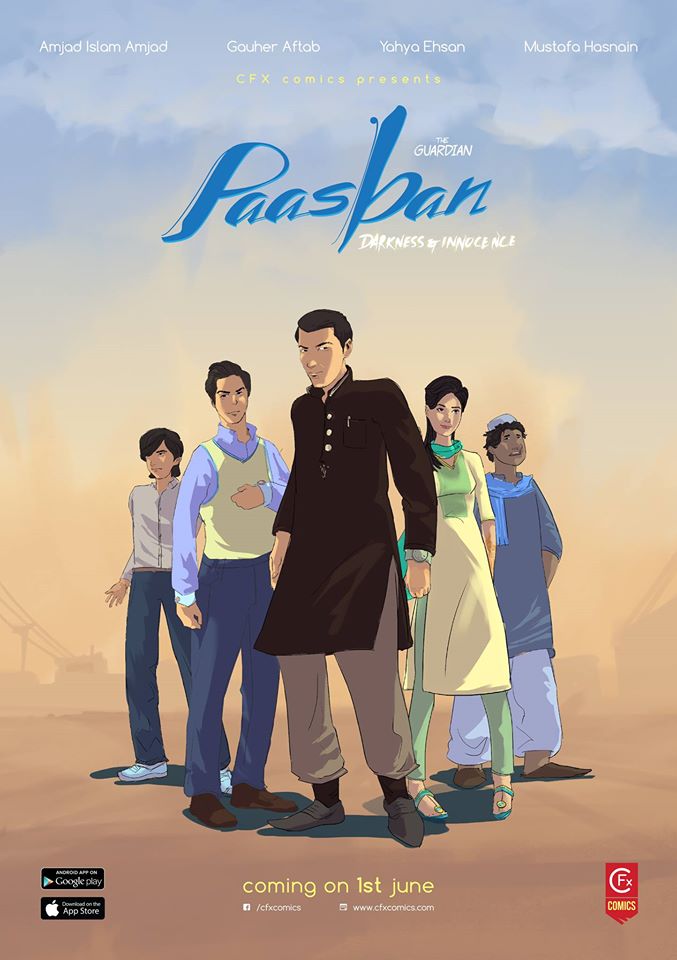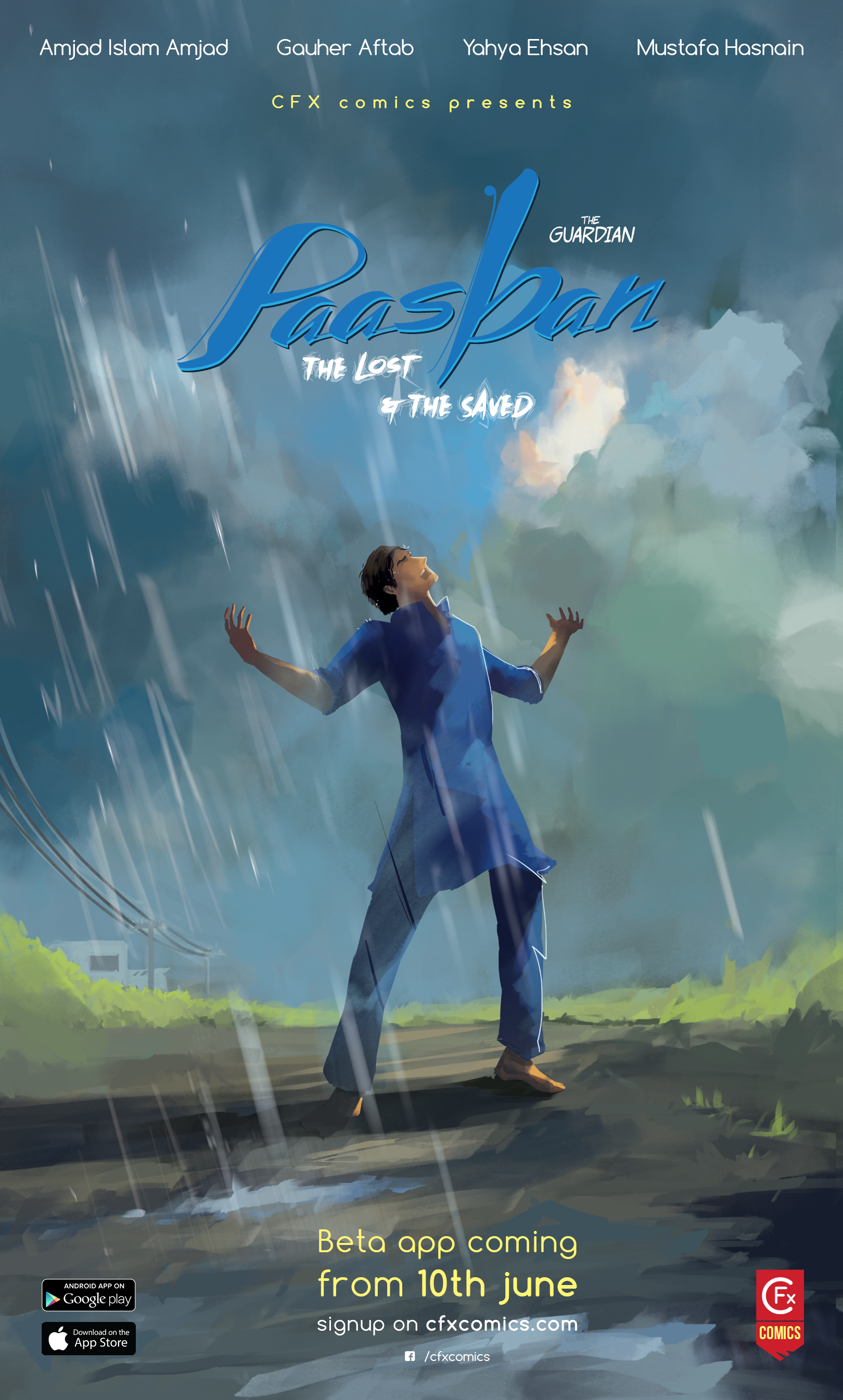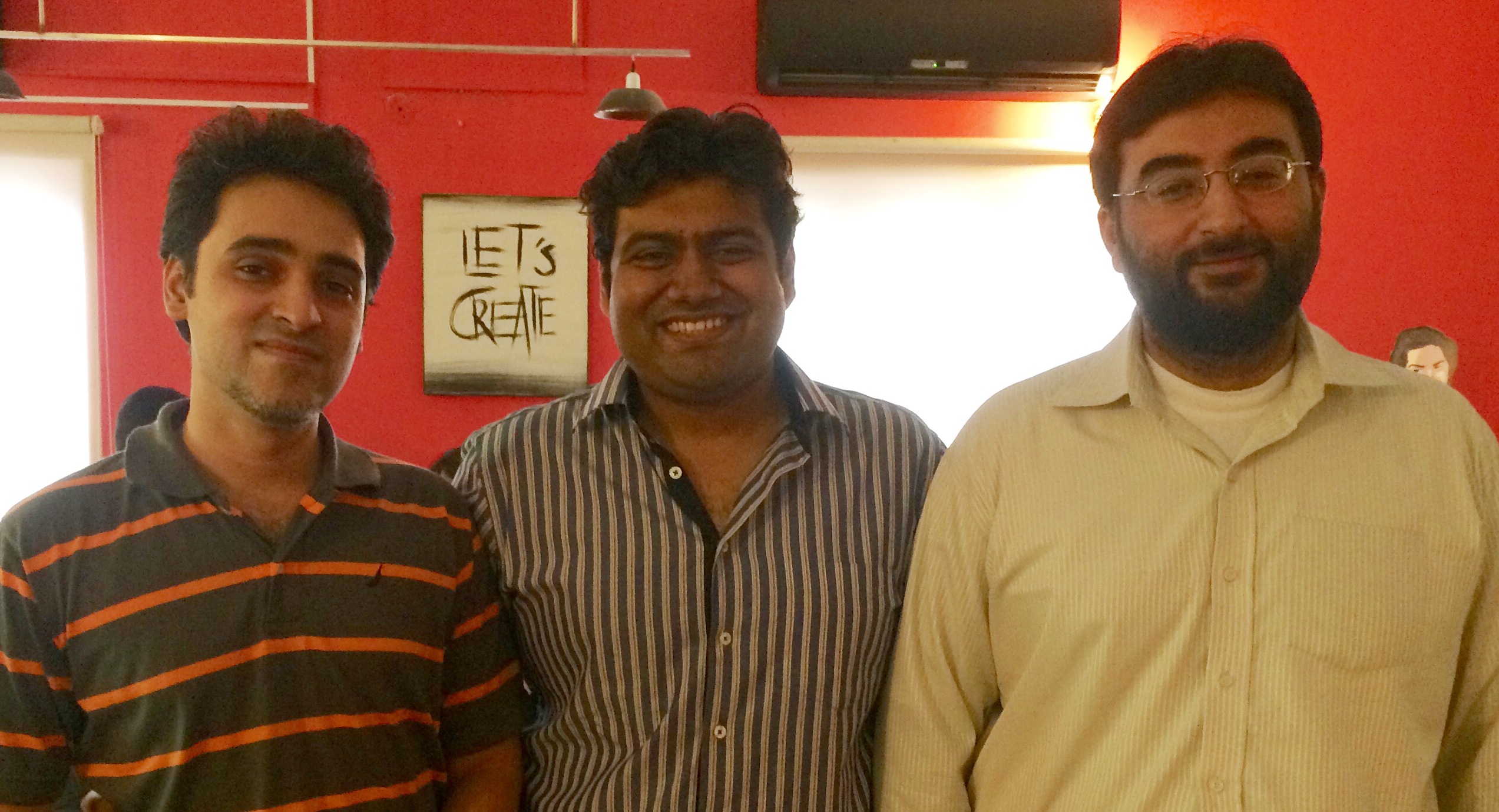"We needed to do more than just attend candlelight vigils"

What motivated you to bring out this series of books?
Mustafa Hasnain: We have been working on this project for about two-and-a-half years. The inspiration first came when I donated some of my books to my mother's charity school. The children at the school were so excited to see comic books, and that is when it became apparent to me that the comic book medium is something that appeals to children and young people across the economic divide.
So we started to research the subject matter and thought about what we should be writing about. We conceived this character who wasn't really a superhero, but somebody whom we could all aspire to be. We called him Saad and he was going to be this person who sort of rises up to be the leader of Pakistan. He does it by keeping to the straight and narrow, having all the opportunities to do wrong, but actually doing the right things and rising to become the leader of the country.
However, as we were thinking and doing that, we were pitching the project and developing it. In the meantime, the Peshawar massacre happened, which was something that shook all of us to the core. And we decided that we needed to do more than just attend candlelight vigils. So the books show the different archetypes that are affected by terrorism and how terrorism affects society as a whole as well.
How did the storyline emerge?

Gauhar Aftab: The storyline is inspired by my personal experience and research. In 1996, I was approached by recruiters. Many years have passed since then, and in the meantime we have learned a lot about the recruitment mechanism, which is the same sort of brainwashing narratives that I was exposed to as a young boy, in pretty much the same form, in various rural settings, as well as in places which aspire to – or at least say that they – provide religious education. This is a true travesty, something that we are trying to address here.
How does the recruitment process work?
Gauhar Aftab: I guess you could call it a four-step process. The first step is to delegitimise the credible sources of religion that exist within society, such as your parents or various sects that you belong to. The recruiters work towards reducing the legitimacy of those authority figures within religion and demonising them as people who are not on the right path, so you totally remove them from authority. Within that vacuum you can then insert an entire narrative and an entire worldview, and that is pretty much what happened.
In the second step, after the authority figures have been successfully delegitimised, they are replaced with a global narrative or worldview that says that the Muslim Ummah is involved in a direct or inevitable clash of civilisation with the West, cherry-picking various historical examples to support that claim, including Palestine, Bosnia and Kosovo. Kashmir is a huge example for recruiters.
So once you have riled your audience with that worldview, then you can progress very easily towards the "otherisation" or the demonisation of the enemy, the enemy as defined by the religious radical or the militant or the terrorist, as you would call them now. After that, it becomes very clear that you are being pushed towards action, an action that is largely violent and can include martyrdom, because martyrdom is also a tool that they use to glorify the idea of jihad or glorify the idea of giving up your life for a particular cause.
The last venture is that you are ideologically aligned with the idea of rejecting your current template of fate, accepting a new worldview, acting upon it violently. Now you need to act. So who is the enemy you are going to act against? Over the years, the enemy has been defined in different ways. Sometimes it is India, sometimes it is Israel, sometimes it is the West, Shias, Ahmadis, Ismailis. Now it can be pretty much anyone. And that's where we are today: that personal experience that I have seen over the years being perpetuated across various strata in society was one thing we felt we had to attack head-on through a counter narrative that we wanted, which is pretty much evident in the "Paasban" series.
What is the key message of the "Paasban" series?

Mustafa Hasnain: We package this first and foremost as a beautiful entertainment package that has a very entertaining story to tell, but in it there is a message about how to stay away from recruiters, how to drive the reader to take the decision of not going down that path, and that is really important for us, because all these young people who go down the path kill children and innocent people.
I am sure that when they started off, they didn't start with these things in mind, and for many of them, their intentions were to do something positive with their lives, but they ended up on this very cruel, brutal path that one day led them to become a human bomb. So, even if something like this saves one kid from taking those subtle wrong choices that lead them down that path, I think that the purpose of "Paasban" would be served.
Gauhar Aftab: The narrative of the series is not one of secularism. That is a very key distinction. Whatever our own beliefs are in this particular topic, we don't feel that an effective communications strategy that seeks to engage the vulnerable audience would include a secular sort of base line for our message. We want to create "Paasbans" or guardians within society that are actively working to delegitimise the religious authority of the extremist, of the radical and to reclaim that authority for ourselves as Muslims. That, I think, is the key message that we all think is necessary.
Who is your target group?
Mustafa Hasnain: We wanted to take this story beyond just the English-language medium so we converted the narrative into Urdu script. We have distributed the printed versions across schools, especially in Punjab. We decided to target the most vulnerable part of the country, the kids who are most vulnerable to extremist ideologies in Punjab where there is unfortunately a low level of education.
What has the response been so far?
Mustafa Hasnain: The response has been phenomenal. The kids were really excited about the content. They were really excited about the medium, because these are kids that don't really have access to as much entertainment as those of us who come from affluent backgrounds.
Gauhar Aftab: Mustafa mentioned 16 December as a watershed moment. It truly was a watershed moment, and the impact of it hasn't really been visible so far. But in your daily life, you can begin to see a sea-change take effect. Pakistan at midnight on 15 December was an entirely different country. From the morning of 16 December onwards, there was an outpouring of grief, horror, shock, anger against people who we are yet to define as perpetrators of this act.
Everyone is pretty clear on the fact that you can't use religion to kill innocents, especially not children, in this particular way. Evidence has been stacking up over the last decade or so that this is definitely not something good for civilians, but until that moment, I don't think we outwardly rejected this idea as a society. Now, however, we are at that point.
Now, when we go to government departments, to average guys on the street, to public school kids and public school teachers, when we talk to bookshop owners, when we talk to anyone, we get a resounding vote of confidence that what we are doing is absolutely 100 per cent necessary; it's correct; it's what we need.
People may not have the ability to stand up and say this right now, but hopefully, and that is why we call our series Paasban, hopefully with this series, we'll see a multitude of people having the courage and getting the confidence to stand up in society and talk about these issues and we hope that they will be guardians of this narrative in the future as well, whether our series is successful or not. That is the kind of change we are looking for.

Tell us about the characters in "Paasban"
Mustafa Hasnain: Saad is the protagonist; he is the moral centre of the whole story and also the leader of his group. We wanted to create heroes; we didn't want to make them superheroes, we didn't want to clad them in Spandex or to ape a style that was very Western. We took inspiration from local artists, local style and the culture that is prevalent over here; we looked at people who are ordinary – just like us – but find themselves in extraordinary circumstances.
Asim is the character in the story who is the one the readers associate with in this whole situation. He asks the questions that the readers want to ask, he gets converted by the organisation and he is the one who reverts back with the help of his friends. In essence, the story is really all about Asim. We have explored various archetypes who fall victim to extremist ideologies. So Asim, is a young college-going kid who has got a group of friends around him, but who is going through an identity crisis, who doesn't know how he fits in with his friends, what his strength is, even though Asim is very intelligent, he doesn't know it yet. Because of that lack of identity, he falls victim to Saale, who is the main antagonist in the series and a charismatic sort of recruiter who is working for a shady organisation. On the surface of it, he is sort of brandishing the ideology and he convinces Asim to work for the cause of the organisation.
Then there is Munir. He is sort of the mirror image of Asim, but he is an emotional character. It's easier for him to toe Saale's line. That's the split between these two characters. He is inquisitive, but unfortunately he is not redeemed through this story. We want to create that impact as well.
I think the most interesting character is Khurram. In the first book, Khurram comes across as incredible, very brash, very aggressive. He is Saale's enforcer and has a lot of resentment because his family died in a drone strike. Khurram is an archetype that is more prevalent in Pakistan, a story of radicalisation through desperation. That frustration can obviously be economic, but it can also be as a direct result of conflict, and that conflict could be with an external state, as in the case of Khurram where it is a drone attack by the West.
Roma Rajpal Weiß
© Qantara.de 2015
